Cargo drone project for the transport of medicines in the east of the DRC: mission of Xavier Vincke, Program Officer
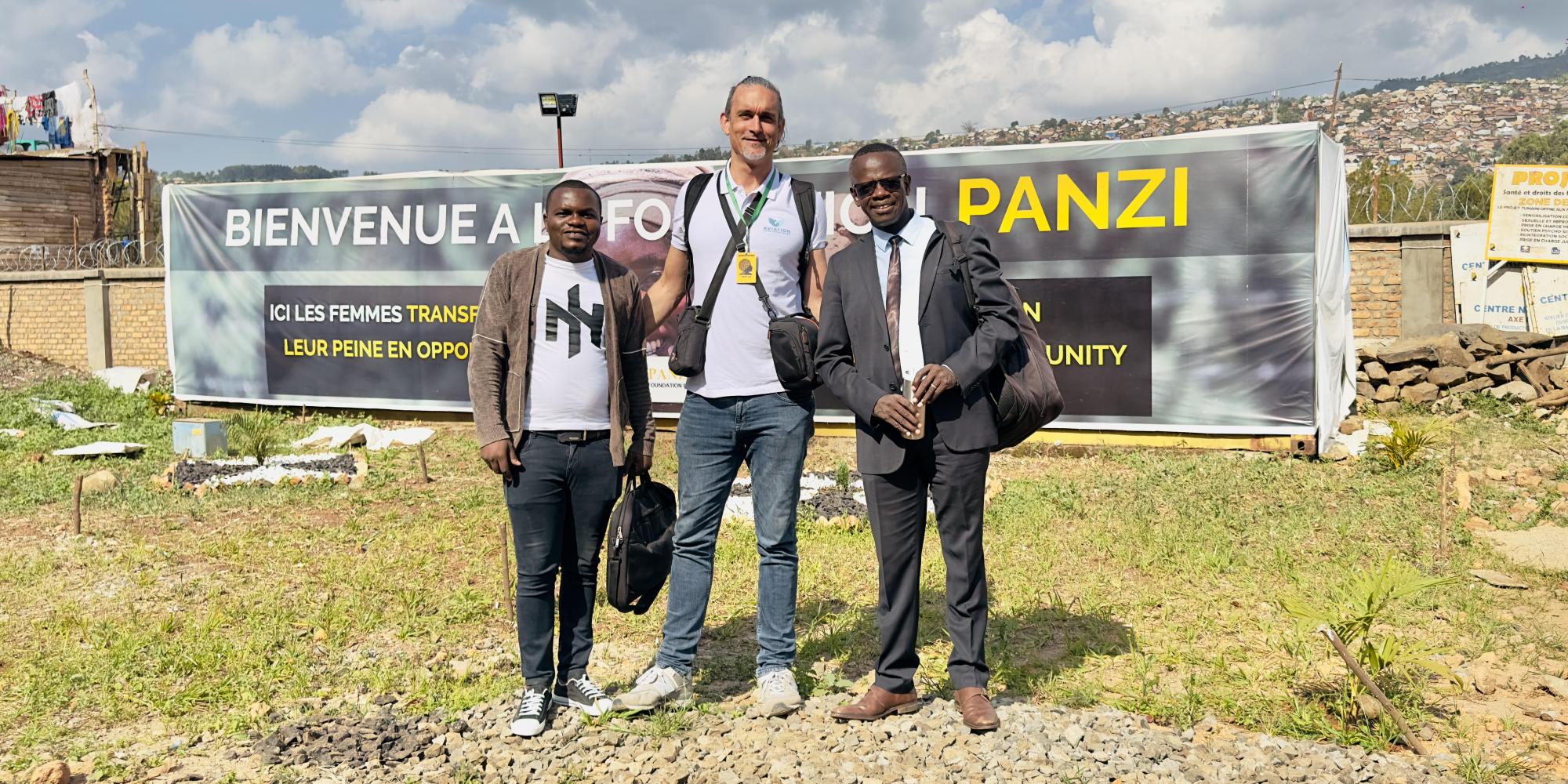
This project, taking place in the Province of South Kivu, aims to test the use of drones for the transport of medicines to isolated areas.
This mission by the program director of Aviation Sans Frontières Belgium took place from June 1 to 17, 2024 in Kinshasa, Goma and Bukavu, in the Democratic Republic of Congo.
Many localities in the South Kivu Province are extremely difficult to access by road, which makes transporting medicines to health centers very complex.
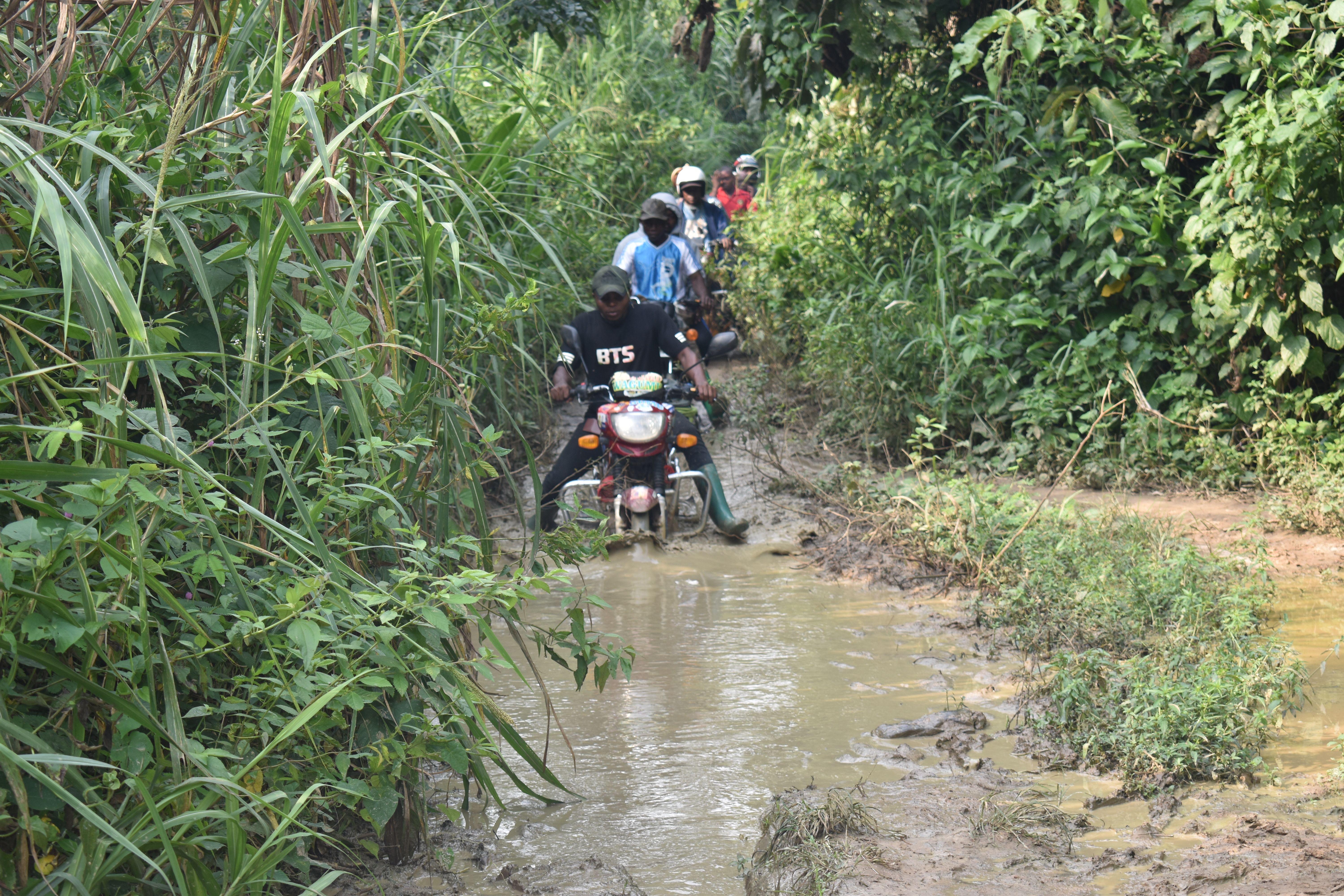
It sometimes takes up to two weeks for medical teams to travel 300km.
The consortium Aviation Sans Frontières (ASF) Belgium, ASF France, ASF Switzerland and Handicap International obtained funding in 2023 for the “Pilot project for the establishment of a last km zero-emission controlled temperature supply chain by drone to improve the care of victims of gender-based violence-GBV and other victims of conflicts in the East of the DRC", lasting 18 months, from 01/11/2023 to 30/04/2025.
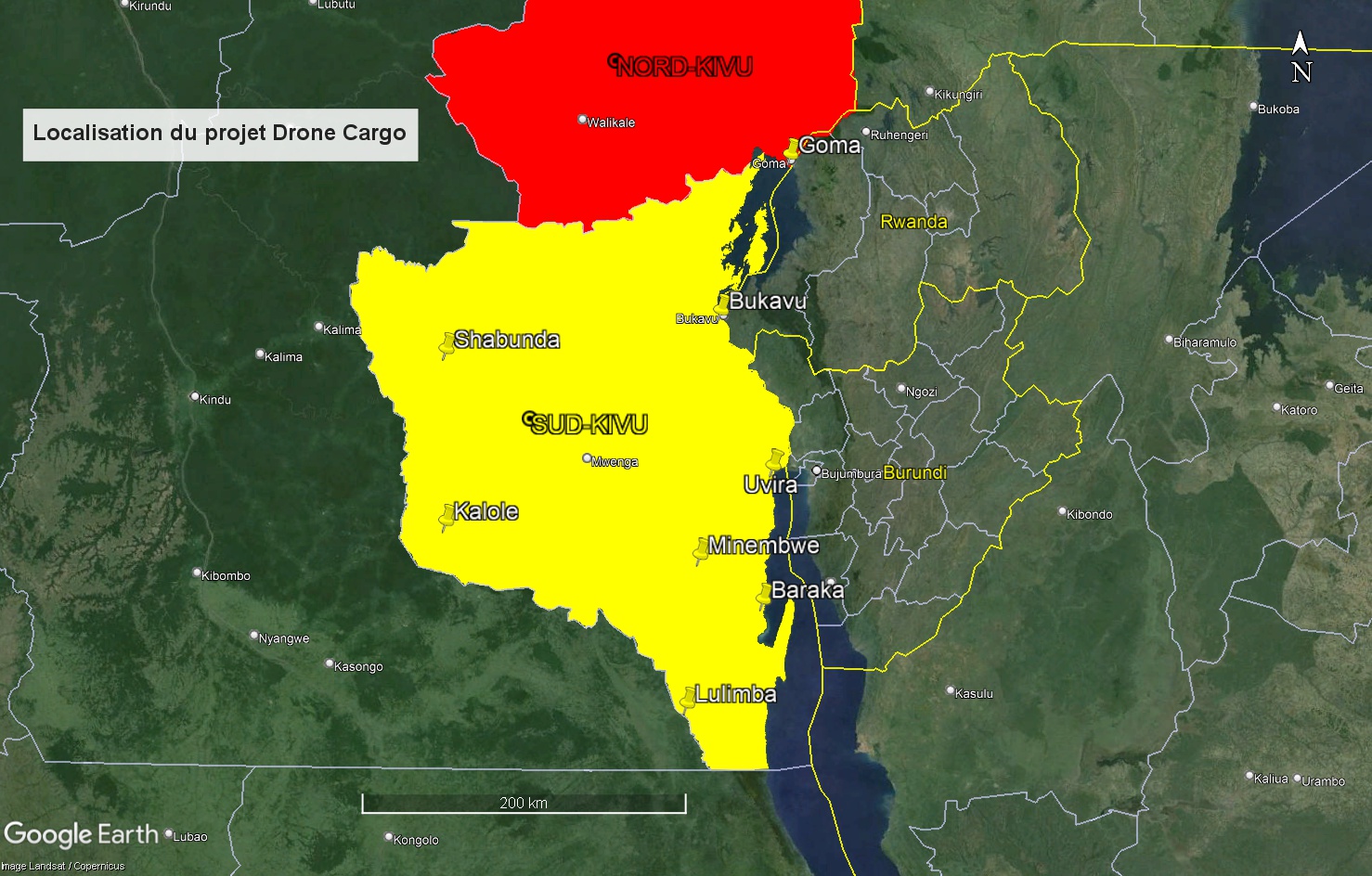
Initially, this project will use “Vertical Take-Off and Landing (VTOL)” drones, that is to say drones taking off and landing vertically in multirotor “mode” and then flying in fixed wing or flying wing mode, like a very small plane.
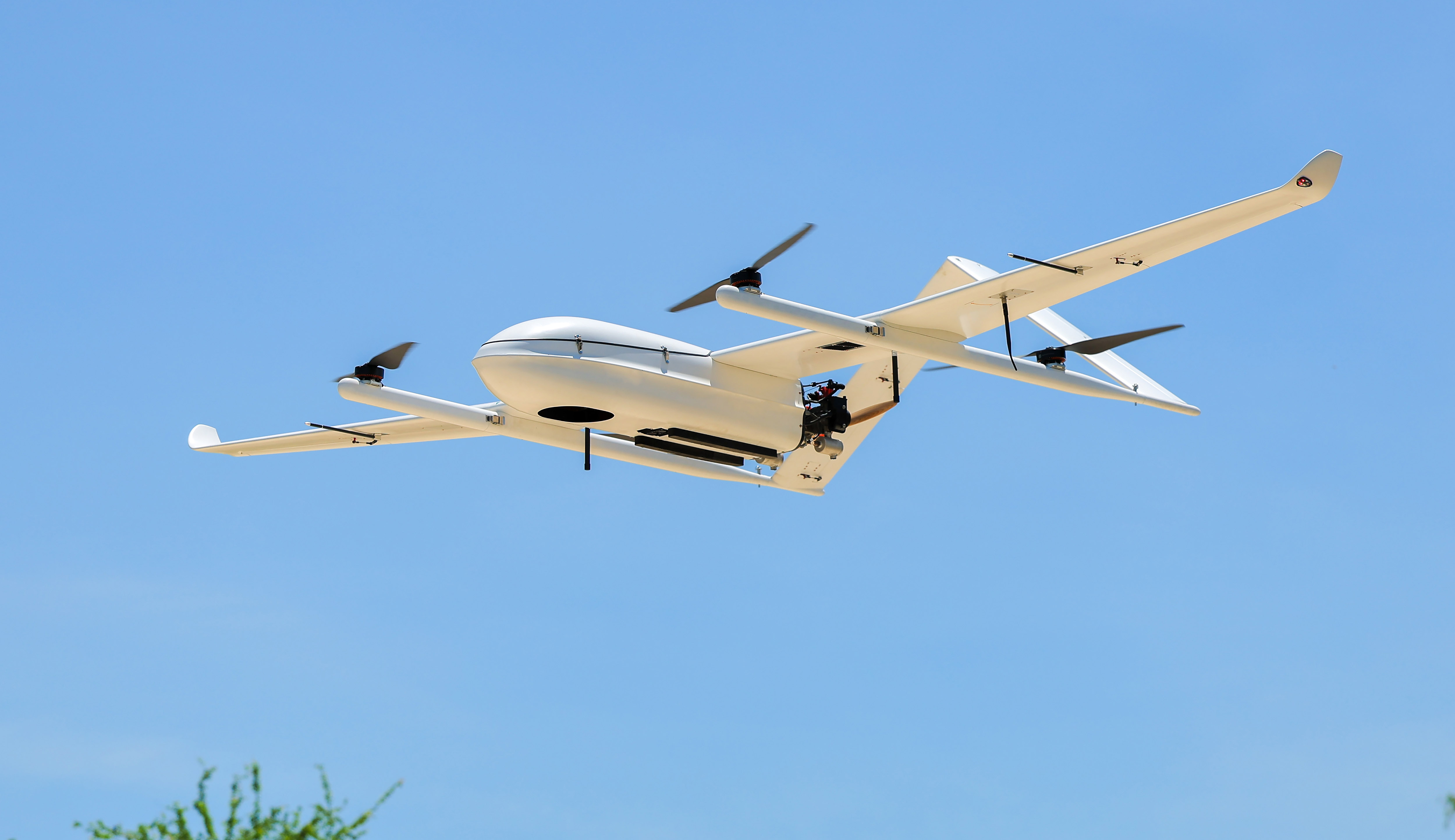
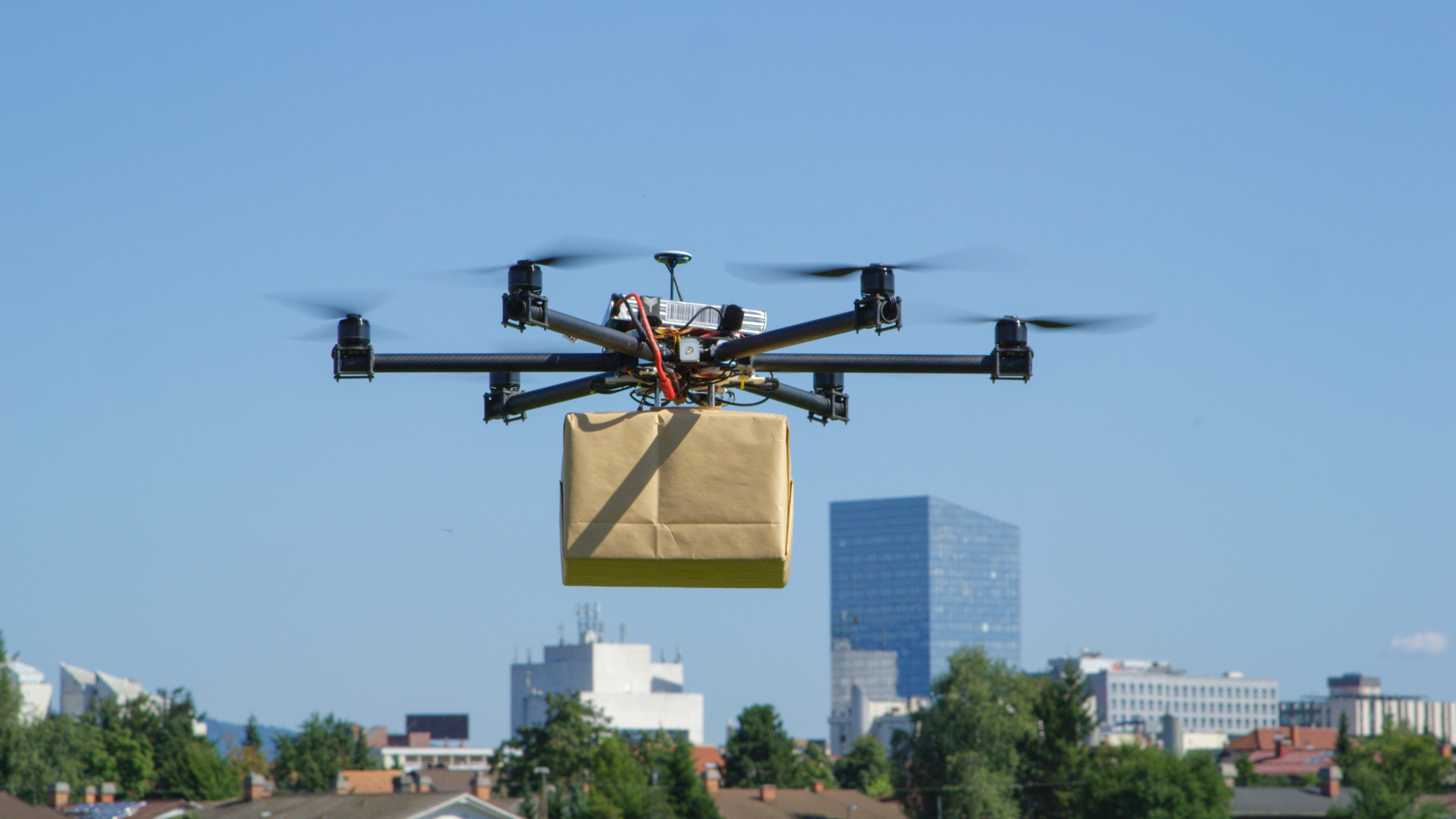
The major advantages of VTOL drones are their ability to land and take off vertically, therefore without the need for an aerodrome, and their ability to cover large distances, of the order of 100 km. Multirotor type drones have poor aerodynamics and, therefore, a smaller range of action, of the order of 10 km.
VTOL drones have a relatively small carrying capacity (10 kg). But the repetition of flights over the course of a day and the transport of potentially life-saving medicine nevertheless makes them very useful.
The project is also evaluating the use of drones with a much greater carrying capacity (1,540 kg) and a greater range of action (400 km). But these drones require an airstrip to land.
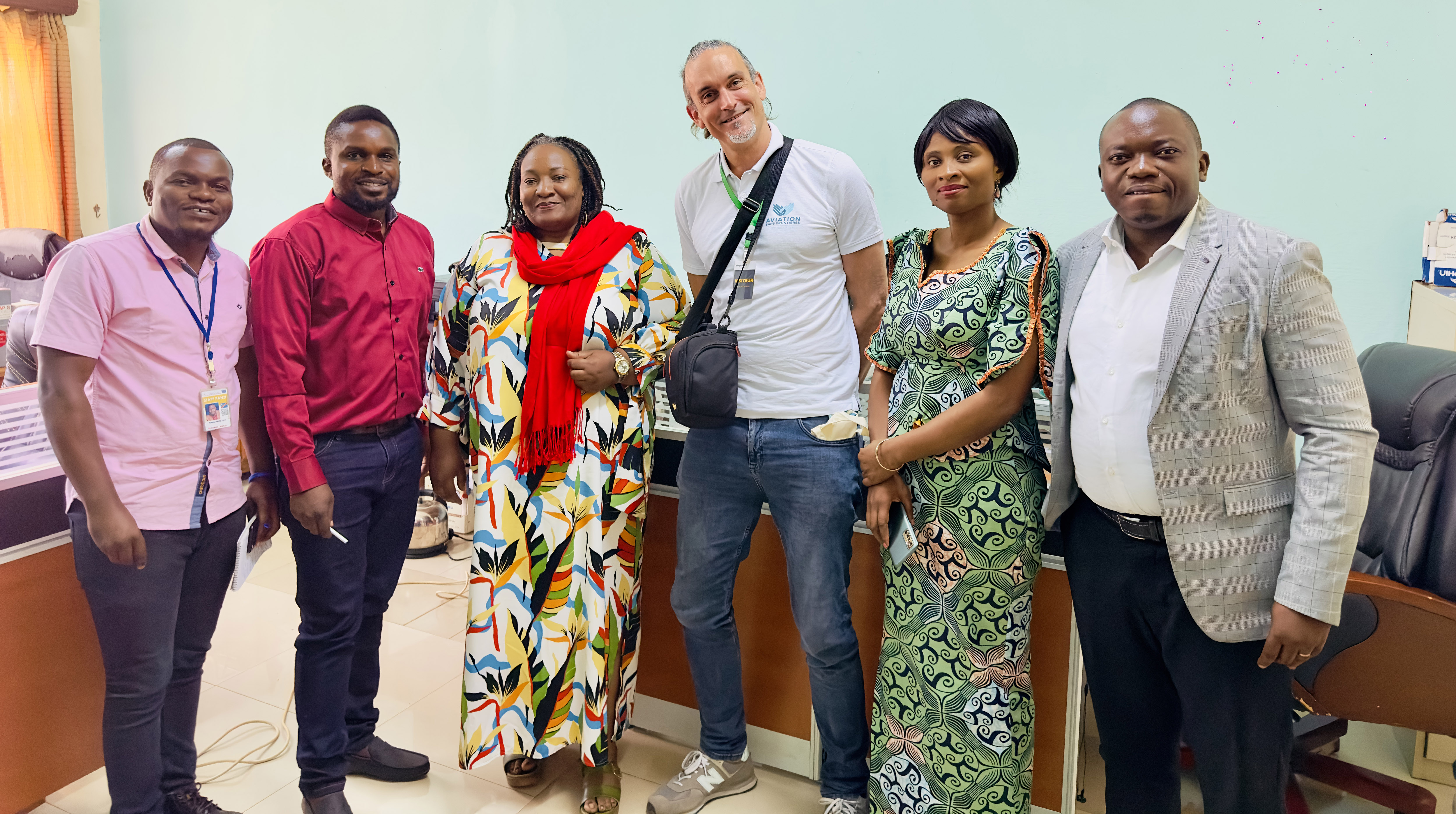
Working sessions also took place with certain local authorities in the health field.
Xavier Vincke was invited for an interview about this project at on Svein Media TV Channel.

Xavier Vincke was assisted in all these meetings by Arsène Lwabandji, logistics and communications manager of Aviation Sans Frontières Belgium in the DRC and Crispin Kashale, Communications Director of Panzi hospital (cover photo of the article, from left to right: Arsène Lwabandji, Xavier Vincke and Crispin Kashale). A huge thank you for their dedication to Aviation Sans Frontières projects.
